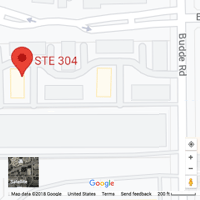Temporary Protected Status Cleared to End
On September 14, 2020, the Ninth Circuit Court of Appeals lifted an injunction suspending the termination of the Temporary Protected Status (TPS) program for beneficiaries from Sudan, Nicaragua, and El Salvador. In dissolving the injunction, the court found that the Trump administration was within its legal authority to end TPS.
The ruling also applies to TPS holders from Nepal, Honduras, and Haiti. However, the ruling will not affect TPS status for Haitian nationals as a parallel nationwide injunction remains in place from a New York federal court.
TPS is a life-saving immigration status that allows foreign nationals to remain in the United States if, during the time they were present in the United States, something catastrophic happened in their country of origin preventing their safe return—for example war, famine, natural disaster, or epidemic. TPS allows people to work legally and be protected from deportation.
The Court’s decision primarily affects citizens from El Salvador, Nicaragua, and Sudan, many of whom have lived in the U.S. for decades, have U.S.-born children, and have been considered essential workers during the coronavirus pandemic. Those affected could include roughly 130,000 essential workers, more than 10,000 of whom are in medical professions, and roughly 279,000 U.S.-citizen children under age 18 who are living with TPS recipients and could be separated from their families if their relatives are deported.
Despite the Ninth Circuit’s decision, TPS beneficiaries from El Salvador, Honduras, Nepal, Nicaragua, and Sudan should have TPS status and work authorization through Jan. 4, 2021. Following the expected appeals from TPS holders and litigators, if and when the Department of Homeland Security is permitted to implement the termination of TPS, the wind down periods for each country will vary.
If you are a TPS recipient, please contact our office to determine other immigration options that may be available to you.
U.S. Citizenship and Immigration Services Fee Increases Halted
On September 29, 2020, a U.S. District Judge Jeffrey S. White, in the Northern District of California, enjoined U.S. Citizenship and Immigration Services (“USCIS”) and the Department of Homeland Security from instituting significant increases in immigration related fees that were to take effect on October 2, 2020.
 The fee increases, ranging from 21% to over 100% of existing immigration fees, would have impacted those seeking citizenship or non-immigrant status, international students desiring work authorization, as well as businesses. The average fee increase across the spectrum of immigration processes was nearly 50%. Had they gone into effect, the United States would be one of a few countries in the word to assess fees to those seeking asylum.
The fee increases, ranging from 21% to over 100% of existing immigration fees, would have impacted those seeking citizenship or non-immigrant status, international students desiring work authorization, as well as businesses. The average fee increase across the spectrum of immigration processes was nearly 50%. Had they gone into effect, the United States would be one of a few countries in the word to assess fees to those seeking asylum.
In short, Judge White found that the Trump Administration failed to comply with substantive and procedural requirements for implementing such a rule and failed to justify the shift in policy. Ostensibly, the fee rule was sold as a means to keep USCIS funded, a point raised in the agency’s response to the ruling. But many view the fee rule as but another of the Trump Administration’s actions to dissuade legal immigration by pushing such relief out of reach of those unable to afford the increased costs.
While the fee rule increasing the costs of immigration processes is currently blocked, if you are considering taking action in relation to your status it would be best to do so as soon as possible. It is unclear how long the injunction will remain in effect, how USCIS will respond in practice, and whether its nationwide reach will be contested. Contact us today to discuss your options.


